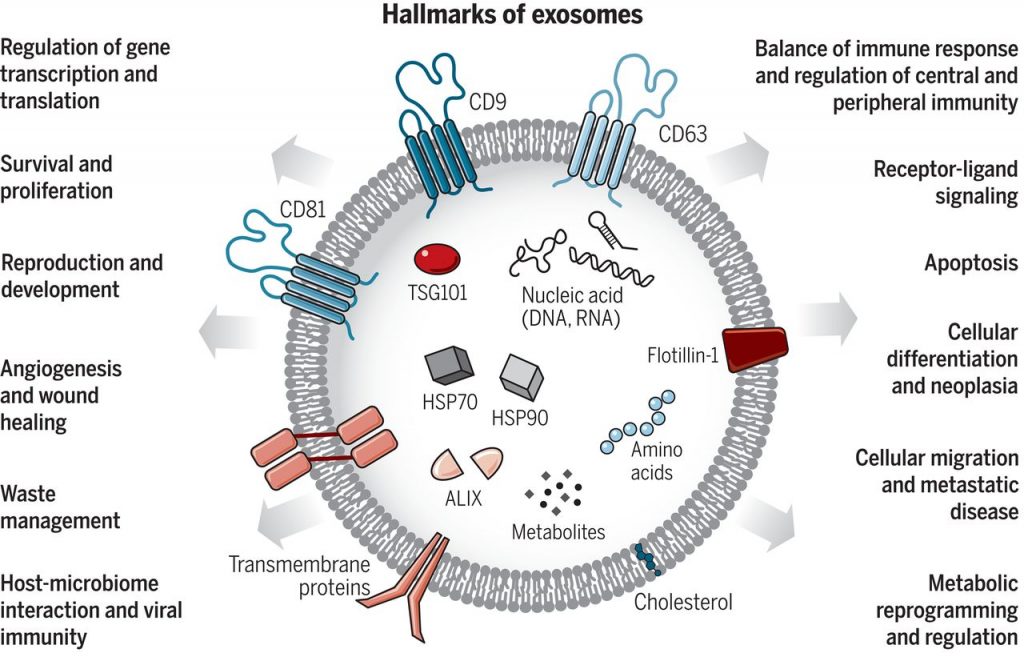Exosomes: A cell-to-cell transit system in the human body with pleiotropic functions.
Exosomes, nano-sized vesicles with an average diameter of ~100 nanometers, are emerging as key players in intercellular communication and disease understanding. Exosomes originate in endosomes and interact with various intracellular structures, shaping their diverse content. They are loaded with nucleic acids, proteins, lipids, amino acids, and metabolites, exosomes mirror their cell of origin.
In a Review, published in Science, Kalluri and LeBleu discussed the biogenesis and function of exosomes in disease, highlighting areas where more research is needed. They also discussed the potential clinical applications of exosome profiling for diagnostics and exosome-mediated delivery of therapeutics to target disease cells.
Exosomes play vital roles in immune responses, viral pathogenicity, pregnancy, cardiovascular diseases, and cancer progression. Their ability to alter biological responses in recipient cells makes them potential disease controllers.
Engineerable exosomes can deliver therapeutic payloads, such as RNA, oligonucleotides, chemotherapeutic agents, and immune modulators, offering targeted treatment options. Unique lipid and protein compositions impact pharmacokinetics, enhancing bioavailability and minimizing adverse reactions.
Exosomes found in all biological fluids offer a non-invasive “liquid biopsy” method for disease diagnosis and prognosis. Multicomponent analysis of exosomes aids in tracking disease progression and evaluating therapy responses.
- Ongoing research promises insights into exosome heterogeneity, biological functions, and standardized purification methods.
- Genetic mouse models and advanced techniques will likely uncover the causal role of exosomes in local and organ-to-organ cell communication.
- Exploring exosome generation and content changes with age could reveal connections to tissue senescence, organ health, and aging processes.
- Bioelectric and biochemical experiments may unveil the cell-independent biological functions of exosomes.
In short, exosomes offer immense potential in both understanding diseases and developing innovative therapeutic and diagnostic approaches, especially in areas like cancer and neurodegenerative disorders.

